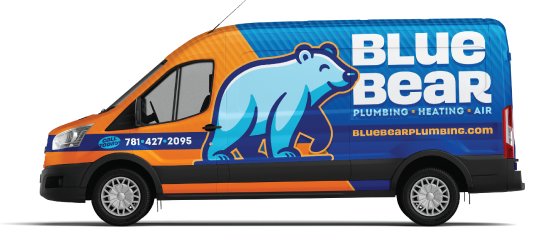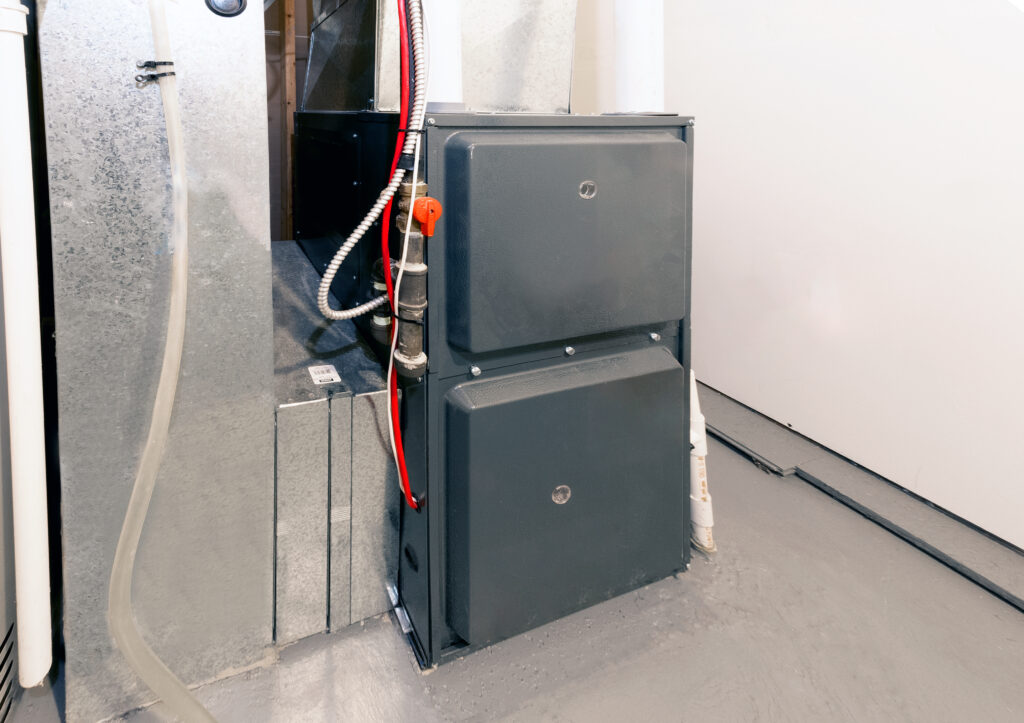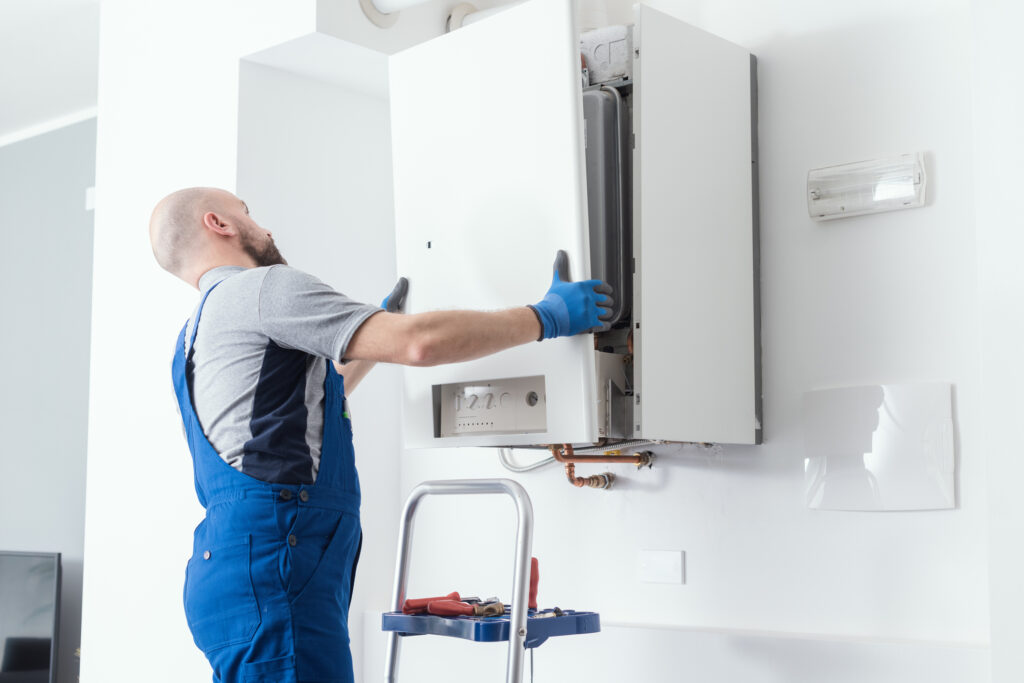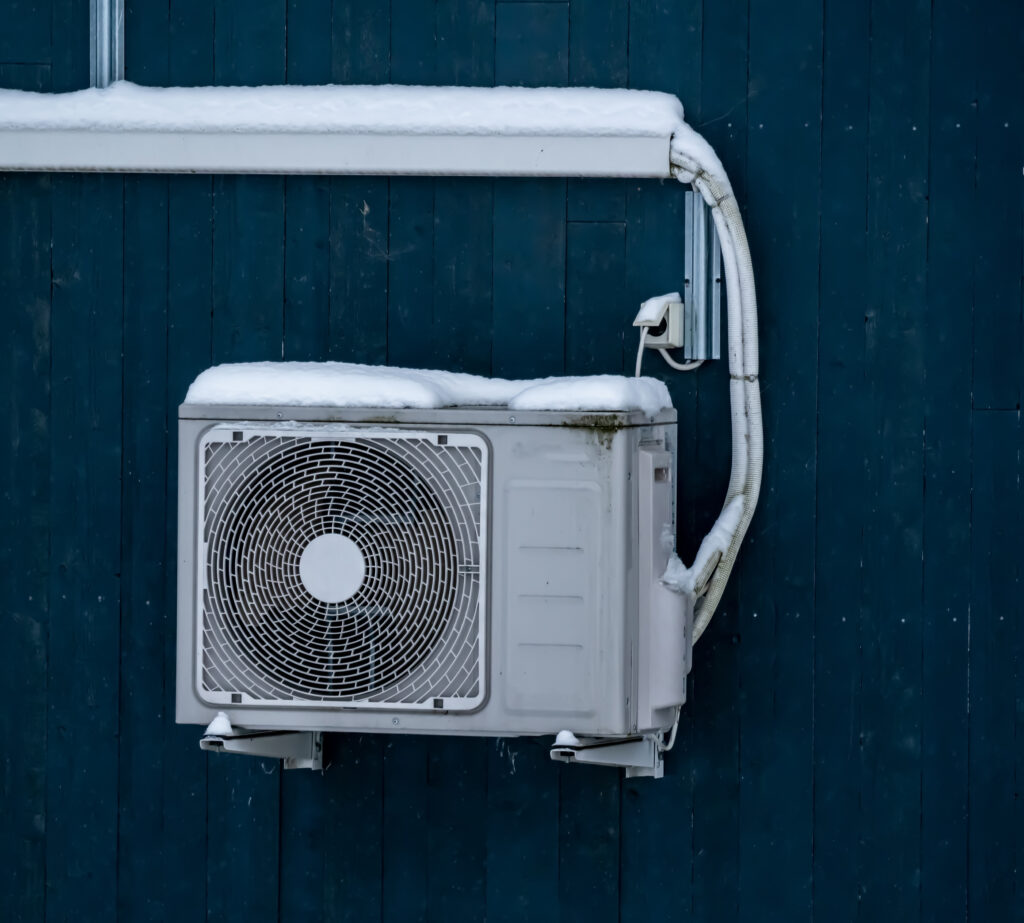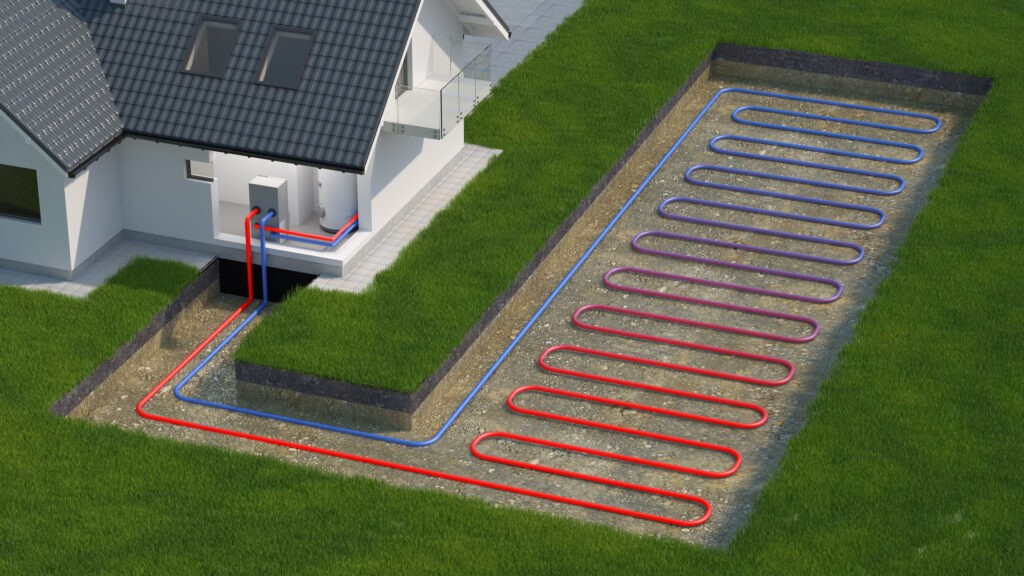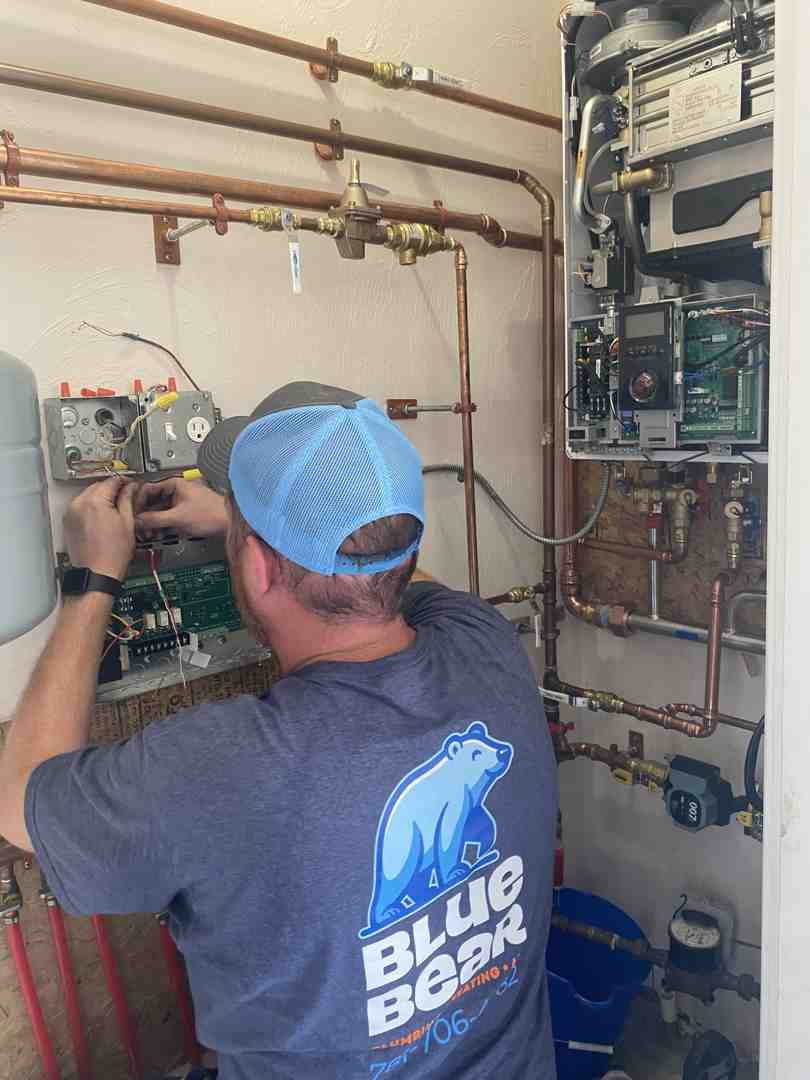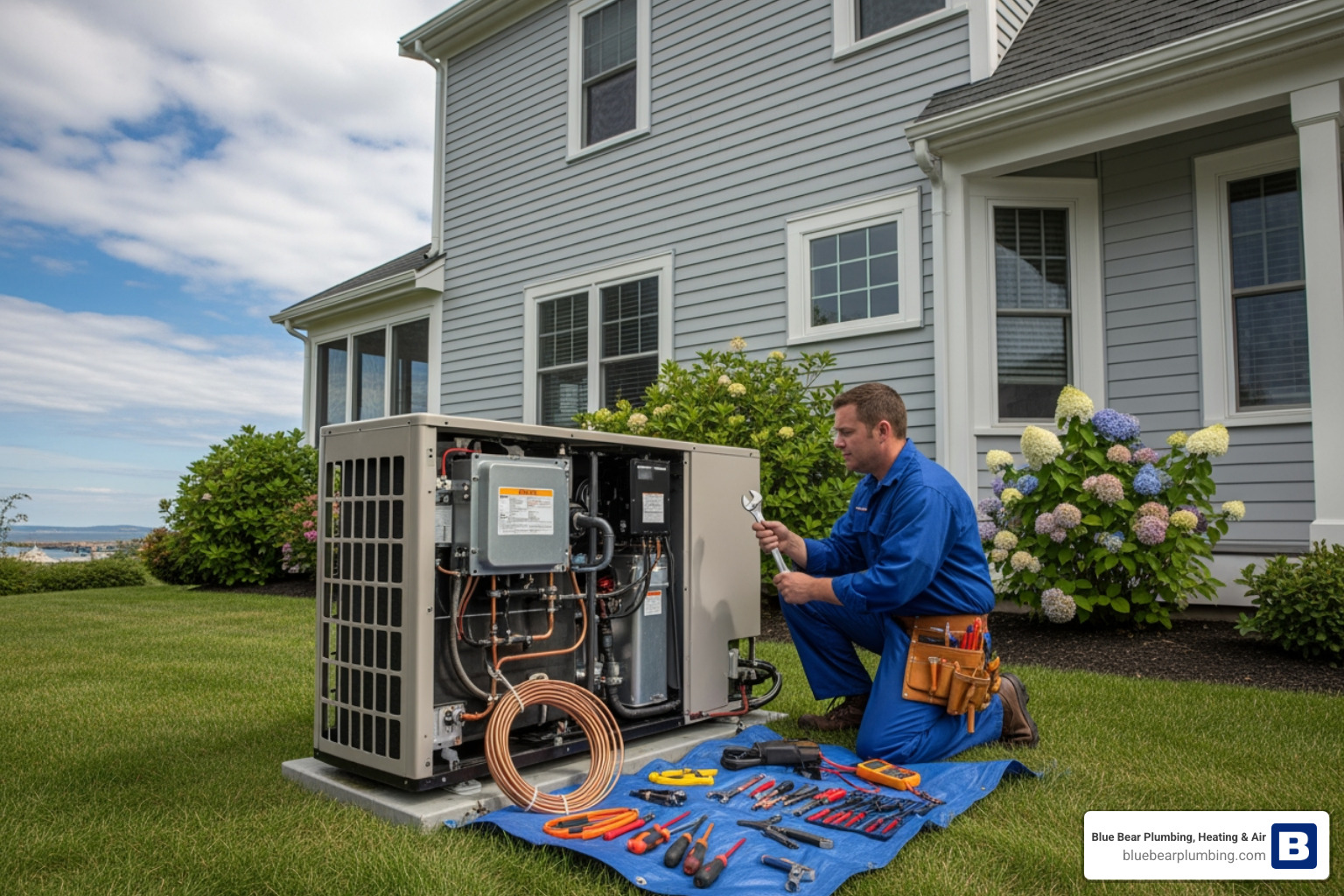Your Guide to Home Heating Systems in Massachusetts
When most people think of home heating, they think of furnaces, but that’s not the only option. Blue Bear Plumbing, Heating & Air is here to help you determine the best heating solution for your South Shore home and how to optimize your system for optimal energy efficiency.
Average Monthly Temperatures in MA
Winters in Massachusetts are cold, icy, and snowy. From December to March, daytime high temperatures rarely rise above the 40s and drop to well below freezing in the evening, with low temperatures typically hovering between 20 to 25 degrees Fahrenheit.
As such, it’s imperative for your health, safety, and comfort to have a reliable, fully functional heating system in your home.
What’s the Best Thermostat Setting for Winter?
- When you’re home, we recommend setting the temperature at around 68 degrees Fahrenheit. This will keep you comfortably warm but not overheated.
- When it’s time to go to bed, 65 degrees is ideal for a good night’s rest.
- When you are away at school, work, vacation, etc., dropping the temperature between 55 and 60 degrees will help you save money without risking damage to your home.
We strongly advise against turning off your thermostat when you’re away. When the thermostat is off, your HVAC system won’t circulate air through the home, meaning your pipes are at greater risk of freezing, and it will take significant power to restore comfort to your home when you return.
Installing a programmable or Wi-Fi thermostat is the best way to stay on top of all these temperature changes. These will give you greater control over your comfort and help you save money throughout the year.
How To Size Your HVAC System
Your current heating system can offer some guidance about heating capacity. However, your home has likely changed over the years. You may have added insulation, new windows, and possibly a home addition.
Before choosing a new heating system, your HVAC technician should perform a detailed load calculation. This will help ensure your new heating system will deliver the performance and comfort you desire.
The Best Heating Systems for Massachusetts Homes
Just as no two homes are alike, no two heating systems are the same. It’s important to find the right fit for your home size, budget, desired energy efficiency, and other factors.
Furnaces
Furnaces are forced-air heating systems. Cold air is warmed as it’s blown over the heat exchanger, at which point the blower motor forces the heated air into your ductwork, where it’s distributed throughout your home.
Gas and oil furnaces work by igniting gas or propane within the burner or combustion chamber to heat the heat exchanger, with the combustion gases exhausting the flue. Electric furnaces work on the same principle, but instead of burning gas, they pull air into the system and use electric heating elements to warm the air.
Furnaces offer numerous advantages, including reliable comfort, energy efficiency, safety, and dependable performance. There are also some drawbacks. Gas and oil furnaces are less eco-friendly due to emissions, and, while rare, there is the potential for carbon monoxide buildup in the home. However, electric furnaces can cost more to operate because natural gas and propane are more affordable in Massachusetts.
Boilers
Boilers are hydronic heating systems. Gas and oil boilers burn the fuel within a combustion chamber, which then heats the water or turns it into steam, depending on the boiler type. They produce heated water or steam that travels through a series of pipes to radiators, baseboards, or underfloor heating systems.
When it comes to comfort, hydronic heating systems are among the most reliable and require less maintenance than furnaces and other heating systems. Boilers are energy-efficient and durable, and since most are on closed-loop systems, they won’t cause high water bills.
On the other hand, they’re slower to heat your home than furnaces or heat pumps, but once the home is warm, it tends to stay warm longer and with less effort. While they cost more to purchase and install, hydronic heating systems tend to cost less to operate.
Heat Pumps
Heat pumps operate much the same way as an air conditioner. They extract thermal energy to control your indoor temperature.
This is possible because the refrigerant pumped through the system expands and evaporates into a gas, moving through a compressor and causing the temperature to rise. The heated gas is passed over the heat exchanger, at which point the blower motor pushes the heated air into the room. Similarly, the process can be reversed in the summer to cool the home.
It’s a more complex system, so the upfront cost is typically higher than furnaces. However, a heat pump is more affordable than buying a new furnace and air conditioner together. Heat pumps also operate less efficiently in extreme temperatures, and as with electric furnaces, they are more expensive to operate since they depend on electricity. However, because there is no combustion, heat pumps are a carbon-neutral, energy-efficient option that can heat and cool your home.
Geothermal Systems
Geothermal systems tap into thermal energy in the ground. Using a system of pipes and tubes beneath your home, they operate similarly to air-source heat pumps.
Geothermal units are incredibly quiet, and the temperature below ground is constant and reliable, so you’ll always have consistent heating. They’re also the most energy-efficient heating option, and they can even reduce energy consumption by up to 44% compared to air-source heat pumps.
The main disadvantage is that installation is costly and requires planning and permitting, which can extend the required installation time and cost.
When Should I Schedule a Heating Tune-Up?
No matter your heating system type, we recommend scheduling your annual tune-up in the early fall. This will ensure your system is ready for the cool weather ahead and reduce the risk of sudden system failure or malfunction.
Choose Blue Bear for Heating Installation
As a locally owned and operated home service provider, Blue Bear Plumbing, Heating & Air proudly serves the needs of the MetroWest and South Shore communities.
We understand your HVAC needs and offer a broad range of top-quality solutions to help save you money, enhance your comfort, and improve the reliability of your heating and cooling systems.
At Blue Bear, we ensure:
- A seamless installation process
- 100% satisfaction guaranteed
- Same-day service appointments
- Service from highly trained technicians
- 24/7 emergency service availability
- Financing options on approved credit
Call (781) 706-4682 to request a new heating system installation or heating repair or maintenance for your existing unit.
Contact Us Today

Routine maintenance is vital for the longevity of your plumbing, heating, and air conditioning systems. Sign up for our Blue Care Maintenance Plan for annual service and exclusive membership benefits, including:
- Priority scheduling
- Waived service fee during normal business hours
- 10% discount on service calls
- 3% discount on new installations
- Two-year parts and labor warranty on new equipment


